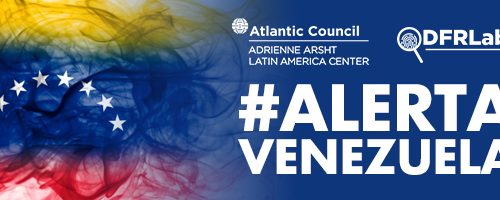#AlertaVenezuela newsletter
#AlertaVenezuela is leading the way in identifying, exposing, and explaining disinformation in Venezuela.
Disinformation, misinformation, or the spread of false information by any other moniker is not a new phenomenon. However, asymmetric exploitation within the information environment—by nation-state and non-state actors—are increasingly diffuse and effective. As the information environment continues to expand and transform at an ever-accelerating rate, monitoring the digital engagement space with an approach that actively informs this environment, as opposed to responding to it, is increasingly necessary. #AlertaVenezuela is paving the way for a deeper understanding of the complexities of the information environment in and around Venezuela. By exposing and explaining disinformation in this context, the Atlantic Council will shed light on the path ahead for combatting disinformation and foreign interference around one of the hemisphere’s largest economic, political and humanitarian crises.
Subscribe to our newsletter
To receive future editions of the #AlertaVenezuela newsletter each week, sign up below!
